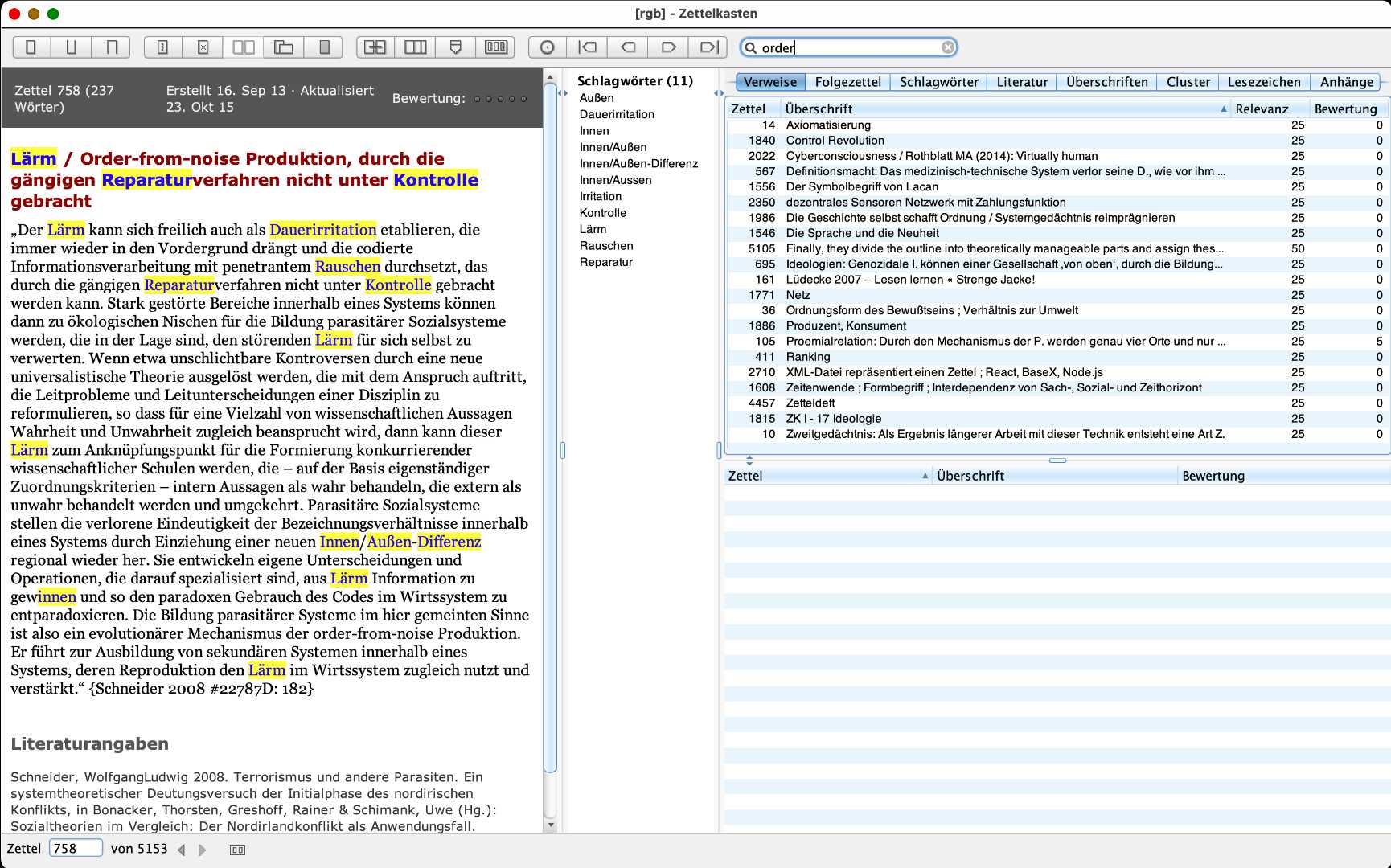Order from Noise Principle page ![]()
> E. MORIN writes: "SCHRODINGER, in "What is Life?" stated that ordered events could be produced out of two basic principles, the first one "Order from Order" (algorithmic), the second "Order from Disorder" (statistical), from which two types of laws are derived, dynamic laws and statistical ones. Von FOERSTER, in 1959, advanced a third principle, which cannot be confused with the first ones, even if it depends on them: "Order from noise" (von FOERSTER 1960, p.31-50). It is a selective principle, according to which noise-events contribute to increase order in complex systems…
Von Foerster says that 'self organizing systems do not feed only in order, they find also noise in their menu' (1960). This Foersterian principle is different from SCHRÖDINGER's disorder, which is, statistically, order. But the Foersterian principle, as well emphasized by G. GÜNTHER (1962), establishes the synthesis: the 'Aufhebung' (overtaking) of order-from-order and of order-from-disorder is mechanicist, 'order-from-disorder is regularity, order-from noise is Novelty, or Creativity' (MORIN, 1972, p.185).
~
⇒ Noise / order-from-noise production, not brought under control by standard repair procedures
"The noise can, of course, also establish itself as a permanent irritation that repeatedly pushes to the fore and permeates the coded information processing with penetrating noise that cannot be brought under control by the usual repair procedures. Severely disturbed areas within a system can then become ecological niches for the formation of parasitic social systems that are able to utilize the disturbing noise for themselves."

Zettel 758
"If, for example, unsettled controversies are triggered by a new universalist theory that claims to reformulate the key problems and key distinctions of a discipline so that truth and falsehood are claimed simultaneously for a large number of scientific statements, then this noise can become the starting point for the formation of competing scientific schools that – on the basis of independent classification criteria – treat statements internally as true that are treated externally as untrue and vice versa.
Parasitic social systems re-establish the lost unambiguity of the labeling relationships within a system by drawing in a new inside/outside difference regionally. They develop their own distinctions and operations that are specialized in extracting information from noise and thus de-paradoxing the paradoxical use of the code in the host system. The formation of parasitic systems in the sense meant here is thus an evolutionary mechanism of order-from-noise production. It leads to the formation of secondary systems within a system whose reproduction simultaneously utilizes and amplifies the noise in the host system."
SCHNEIDER, Wolfgang Ludwig, 2008. Terrorismus und andere Parasiten. Ein systemtheoretischer Deutungsversuch der Initialphase des nordirischen Konflikts. In: BONACKER, Thorsten, GRESHOFF, Rainer and SCHIMANK, Uwe (eds.), Sozialtheorien im Vergleich. Wiesbaden: VS Verlag für Sozialwissenschaften. p. 181–203. ISBN 978-3-531-16110-5. doi ![]() .
.
Some people say that a software system architecture can be an emergent property of an appropriate development Process.
The term “process” describes a temporally irreversible Sequence of events [⇒ Event (Ereignis)].
The term “process” describes a temporally irreversible sequence of events [⇒ Event (Ereignis)].
DOT FROM two-level-diagram